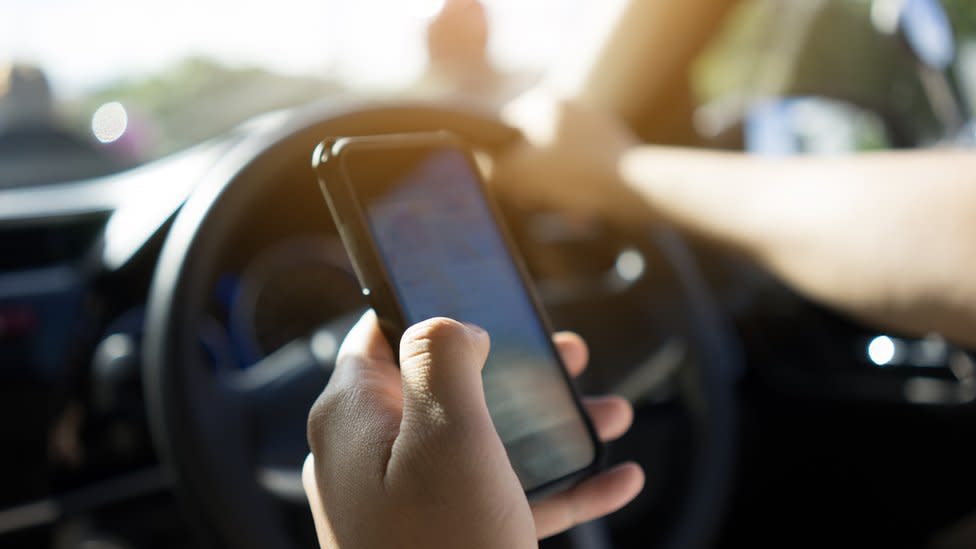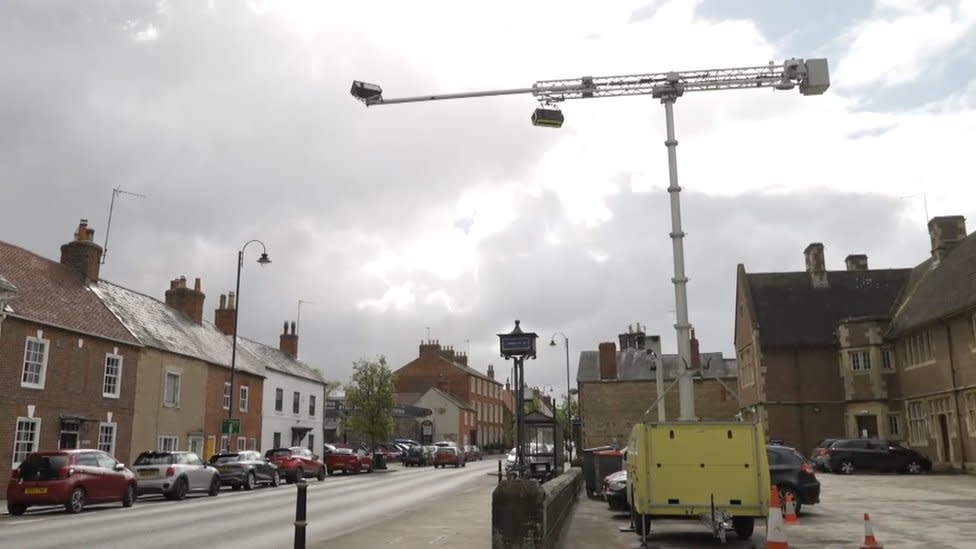AI technology in Northamptonshire catches drivers on mobiles

A police force has said results from using artificial intelligence (AI) "sadly" show how commonly drivers break phone and seatbelt laws at the wheel.
Northamptonshire Police said it identified 114 drivers on mobiles and 180 without seatbelts during a one-week trial using AI technology.
AI analyses images taken by roadside cameras and alerts police to evidence of potential offences.
Using a phone while driving has been illegal since 2003.

In April, a trailer mounted with cameras was parked alongside roads in Northamptonshire to take pictures of passing motorists.
The pictures it singled out could be subsequently reviewed by officers. They will decide on any penalties to be issued.
"AI technology has provided us with an additional pair of eyes," said Matthew O'Connell, Northamptonshire Police's safer roads team manager.
"The results we've had sadly show how prolific these offences are and that despite all of our educational road safety messaging, it is extremely disappointing that some people continue to put their lives at risk".
Driving while using a handheld mobile phone became illegal in 2003
The offence also now covers satnavs, tablets and gaming devices
It is still an offence for a driver to use these devices while stuck in traffic, at red lights or while supervising a learner driver
The maximum penalty is £1,000 and six points on the driver's licence
The trial project is being run by National Highways, whose head of national road user safety, Matt Staton, said: "Drivers are four times more likely to be involved in an accident if they're using a mobile phone.
"We know from a previous phase of the trial that this technology is able to identify these offences and now we're looking at it on a much larger scale."
However, the AA has warned against an over-reliance on the technology.
Its head of road safety Jack Cousens admitted it was a "useful tool in road safety" but added: "A camera can record someone driving dangerously but only an officer can pull them over and stop them before someone is hurt.
"Having more traffic officers on the roads would have a greater impact on driver behaviours."
The trial in Northamptonshire has ended, but 10 police forces, including Norfolk and Thames Valley, will take part before March 2025.
Got a story? Email eastofenglandnews@bbc.co.uk or WhatsApp 0800 169 1830
